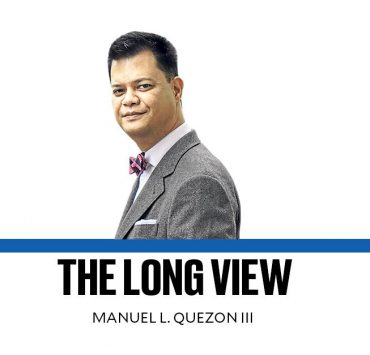Staying off the gray list

The Marcos administration secured an important victory last week when the Paris-based Financial Action Task Force (FATF) finally dropped the Philippines from its list of countries subjected to “increased monitoring” due to serious shortcomings in local measures and efforts to combat money laundering and terrorist financing.
The rejoicing over the FATF’s decision is certainly warranted as the exit of the Philippines from the so-called gray list—the only country to do so in this latest round—means reduced requirements for international money transfers, therefore making it easier and cheaper for Filipinos overseas to send money back to the Philippines.
And with the stain on the local financial system erased—at least for now—the Philippines should see faster and cheaper flow of funds from abroad, benefiting investors, exporters, and depositors.
Plus, international financial institutions that had been reluctant to enter the Philippines for fear that their funds or transactions would be flagged may now reconsider, thus leading to more investments into the country.
As House Speaker Martin Romualdez said, the exit from the closely watched FATF gray list “restores global confidence in our financial institutions and opens the floodgates for greater investments, economic growth, and international partnerships.”
Casino junkets
The feat was the fruit of many years of continuous policy reforms and legislative remedies such as amendments to the Anti-Money Laundering Act geared toward making the Philippines a safe financial haven where dirty money has no place and funds are not going into terrorist groups or used to fund terrorist activities.
“This achievement [exit from the gray list] is a result of strong cooperation within the government as well as the private sector,” said Bangko Sentral ng Pilipinas Governor and Anti-Money Laundering Council (AMLC) chair Eli Remolona Jr.
The FATF took particular note of how the Philippines demonstrated that it had put in place credible controls against the flow of dirty money through casino junkets.
The Philippines also got good marks for improving access of law enforcement agencies to beneficial ownership data that can be used to pinpoint and then prosecute individuals hiding illicit activities behind complicated corporate structures, as well as the implementation of new registration requirements for remittance operators and sanctions against unregistered entities.
Investment destination
These were among the commitments in the government’s action plan to address the strategic deficiencies that the FATF identified in June 2021 when the Philippines was placed on the gray list.
Senate President Francis Escudero, who was one of those who worked on the anti-money laundering measures, cheered the country’s removal from the closely watched FATF watchlist, saying that it should make the Philippines more appealing as an investment destination.
“This sends a strong message to the international community that we are a country that abides by laws and takes the matter of going after financing of criminal elements seriously,” said Escudero.
Given how regulators, legislators, the private sector, and special bodies such as the multi-agency AMLC fought so long and hard to plug the gaps in its anti-money laundering and counterterrorism financing systems and save the country from joining North Korea and Iran in the FATF black list, it behooves the current crop of officials to ensure that the Philippines will not let down its guard lest the Philippines finds itself back on the list.
‘Guerilla operations’
The Marcos administration, for example, should take this decision of the FATF as an added reason to follow through on its commitment to eradicate the Philippine offshore gaming operators (Pogos) sector, which had long been suspected as a funnel for illicit funds.
Indeed, Mr. Marcos’ order banning Pogos effective end of 2024 had been cited as one of the major policy decisions that convinced FATF that the Philippines was serious about fighting the scourge of dirty money that perpetuates crime and terrorism.
But despite this, there are some that are determined to continue operating as evidenced by recent raids of suspected Pogo hubs in and around the capital, thus the need for law enforcers and regulators to thoroughly implement the ban.
Just last week, a raid of a suspected Pogo hub in Parañaque City allegedly operated by Chinese nationals yielded some 450 foreigners and Filipinos, proving the point of the Criminal Investigation and Detection Group that there remain “guerrilla operations” of small-scale Pogos that continue to run operations including love and investment scams despite the ban.
This should signal to the Marcos administration that it should not look at the removal of the Philippines from the gray list as the culmination of efforts against money laundering and terrorist financing, but rather the beginning of renewed efforts to further improve on the standards of the financial system to make sure that the Philippines will not backslide and thus erase these hard fought gains.




















